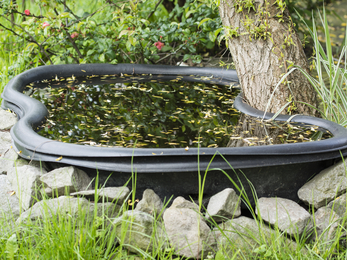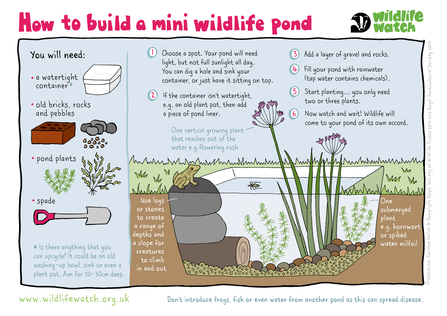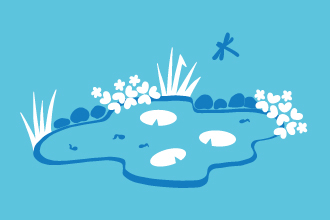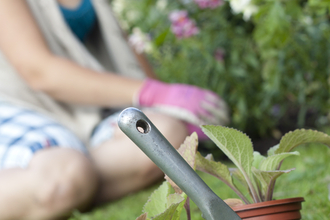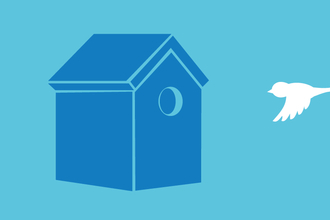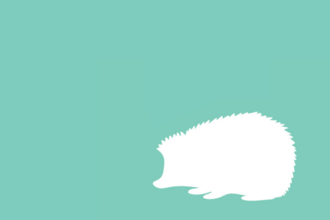
How to create a mini pond
Any pond can become a feeding ground for birds, hedgehogs and bats – the best natural garden pest controllers! Your pond needn’t be big. A washing-up bowl, a large plant pot, or a disused sink could all be repurposed as ponds, providing you make sure creatures can get in and out.
Think big, start small!
What to do

1. Choose a spot. Your pond will want light, but not full sunlight all day. You can dig a hole and sink your container, or just have it sitting on top.
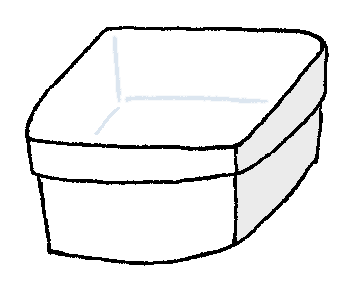
2. If the container isn’t watertight, e.g. an old plant pot, then add a piece of pond liner.
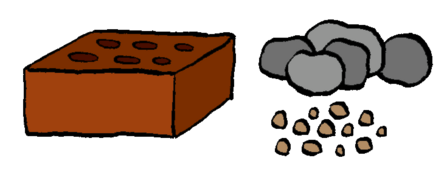
3. Add a layer of gravel and rocks. Use logs or stones to create a range of depths and a slope for creatures to climb in and out. If your container isn’t sunk in you’ll need a ramp from the ground outside the pond.
4. Fill your pond. Use rainwater as tap water contains chemicals.
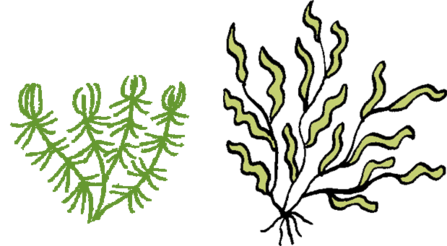
5. Start planting! You only need one or two plants. Great plants for small ponds include:
-Miniature waterlily (Nymphaea "Pygmaea Helvola")
-Lesser spearwort (Ranunculus flammula)
-Starwort (Callitriche stagnalis)
-Flowering rush (Butomus umbellatus)
Click here for more plant ideas
6. Now watch and wait! Wildlife will come to your pond of its own accord. Don’t introduce frogs, fish or even water from another pond as this can spread disease.


